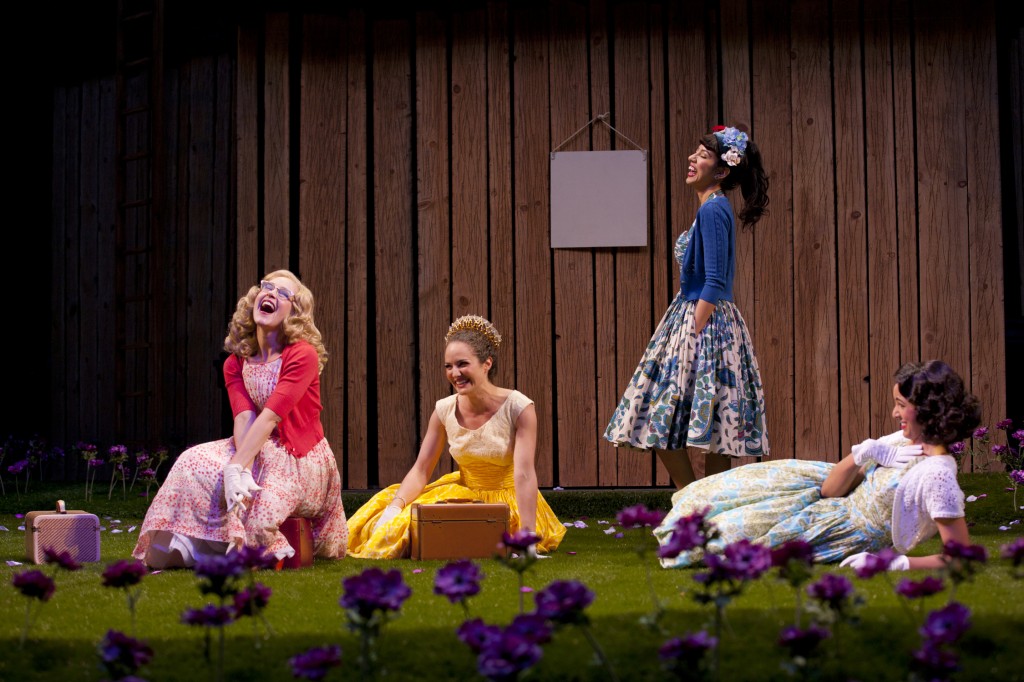 T. Charles Erickson/OSF
T. Charles Erickson/OSF
By Bob Hicks
Mr. Noah, will this downpour never end?
The Scatters have disembarked in Ashland, Oregon, hometown of the Oregon Shakespeare Festival. Ashland is in the foothills of the Siskiyou Mountains, a prodigious distance from Mount Ararat, and also a fair trot from the creeping trees of Birnam Wood. Yet the festival must be wondering just whose curse has descended on it this summer, and when that wandering dove is going to return with the olive branch in its beak. As the puckish Marty Hughley commented, somebody down here must have actually uttered the title of The Scottish Play.
At about 7:15 on Friday evening, the lights went out in the little pink rental house where the Scatters are staying on the south end of town. Lights, clocks, fans, air-conditioner. Mr. Scatter ambled next door to see if anyone knew what was up.
“Excuse me,” he said. “Are your lights out?”
He was speaking to a smiling woman relaxing on a porch chair with her legs tucked beneath her. “Yeah,” she said. “The whole neighborhood’s hit.” She paused and gazed southwest. “Storm coming in from the coast,” she said. “Better just sit back and enjoy the show.”
By “show,” she didn’t mean The Imaginary Invalid. She meant the fireworks she hoped would soon be visible in the sky.
A little later the Scatters hopped into the Scattermobile and motored downtown toward the festival grounds. All the traffic lights were out. All the lights in all the houses and shops were out. The word “neighborhood” was beginning to take on a larger than usual meaning.
They approached the big white tent where they were going to see Moliere’s Invalid. Curtain time was approaching. Still no power. The Scatters began to get nervous. Had the Ashland curse bitten again?
 And on the second morning he got up, made coffee, and wrote his review, which was subsequently published (the review, not the coffee) in The Oregonian. And the review praised some and quibbled some, and was not, in the terminology of the great god Variety, boffo.
And on the second morning he got up, made coffee, and wrote his review, which was subsequently published (the review, not the coffee) in The Oregonian. And the review praised some and quibbled some, and was not, in the terminology of the great god Variety, boffo.